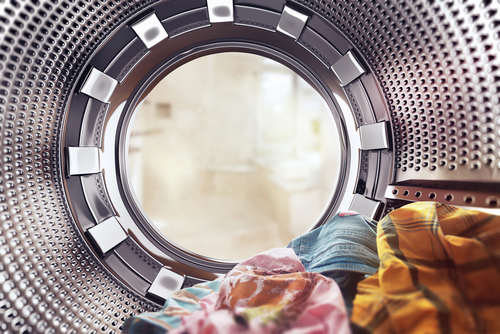New European standard lays the basis for more durable washing machines
To manage global resources sustainably, we must make our appliances last longer and be more energy and material efficient, write Mathieu Rama of ECOS and Isabel Lopez Neira of ANEC. A new European standard has started this process for washing machines, introducing a new method for testing how durable they are before being sold. This is a first step towards unlocking the full load of environmental and consumer benefits.

Household washing machines are one of the most widely used appliances in EU households, but their durability still leaves a lot to be desired. In 2023, more than 80% of households in eight EU countries owned a washing machine — and consumers should be able to trust that they are energy efficient, reliable, repairable, and long-lasting.
EU ecodesign rules already set minimum requirements to improve the energy efficiency and repairability of washing machines. However, rules on their reliability (how long they last before needing to be repaired) are lacking.
European standardiser CENELEC has taken a first step towards plugging the reliability gap with its newly published standard: EN 50731. The standard introduces a new testing methodology to determine the longevity of household washing machines.
EN 50731: A springboard for action
Adopting EN 50731 is an incomplete but important step towards more reliable and durable washing machines. Based on a standard that ECOS and ANEC helped to shape, the new method involves analysing the reliability of the machine through physical testing that uses methods close to real-life conditions — including load quantities and washing temperatures — while accelerating real-life usage patterns.
If washing machines last for a long time, fewer need to be produced, and fewer precious resources will be used as a result. For consumers, this will mean more reliable washing machines enter the market faster, guiding them towards more reliable machines that will save them money in the long run. For manufacturers, there will be less of a burden, with their products fully tested in mere months.
While this standard takes important steps towards this goal, it can still be improved. The test methodology is usable, but its feasibility has not yet been verified in laboratory conditions. A validation study is currently ongoing, and the standard will have to be updated afterwards to correct any shortcomings identified in the study.
In the context of the reaLIFEstandards project, ECOS and ANEC have been heavily involved in developing this standard. We will continue advocating for more robust methods that are as close as possible to how washing machines are used in real life, preventing the standard from being used as a tool for greenwashing.
Sparking change beyond washing machines
The EN 50731 testing methodology is the first EU standard of its kind, and it is already inspiring similar solutions for other products. As well as itself being improved, we hope this standard can be used as a blueprint for many other household appliances and consumer electronics.
We also hope that the European Commission will consider the existence of such standards when reviewing EU ecodesign and energy labelling requirements.
What if, on top of the repairability and energy efficiency requirements already developed for washing machines and other products, the EU introduced an obligation for all manufacturers to run these reliability tests and make results visible on the energy label? What if they set minimum life expectancy requirements for washing machines thanks to what we hope this standard will become? It would be game over for poorly manufactured, short-lasting washing machines.
We are moving in the right direction — let’s keep up the momentum towards more sustainable washing machines and all consumer products.

 By
By  By
By 
